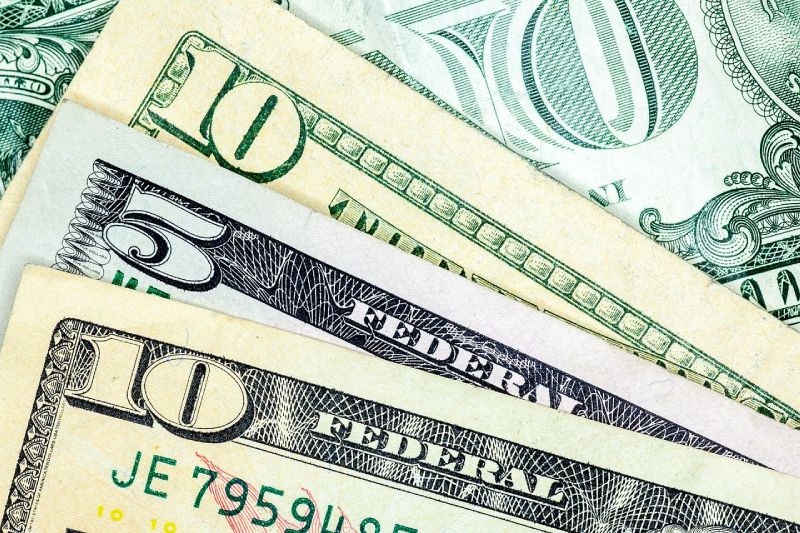Personal loans often feature lower rates than credit cards and tend to feature fixed payments over their entire terms, which ensure that your monthly installment stays the same throughout your loan’s duration.
Now, these loans typically involve an in-depth application process with verification of identity, income and address required before being approved for funding. Lenders will also conduct a hard credit inquiry that may temporarily lower your score. To ensure you need the money, read the following article and consider all your options.
Table of Contents
Use it as an Emergency Funds
An emergency fund, also known as a contingency fund or financial safety net, is important for anyone seeking financial security. Using a personal loan as an emergency fund can serve as a safeguard against unexpected events that threaten your finances – for instance losing your job unexpectedly or incurring medical costs that go beyond insurance coverage.
Life often throws unexpected curve balls. From sudden income losses and unexpected expenses to family emergencies, these events can have lasting and far-reaching ramifications that require financial preparation for them to cover effectively – without an emergency savings account many Americans struggle to meet these expenses, often incurring debt or living beyond their means.
According to this article – https://www.aarp.org/financialpanning, preparing for the unexpected with savings is an easy and low-maintenance way to be ready. Setting realistic savings goals will be important, but even small amounts can provide peace of mind. A liquid account would make this strategy even more advantageous during emergencies.

Consolidating Debt
Managing multiple debt payments each month? Consolidation may be your solution. A personal loan to pay off credit cards, car loans or other unsecured debts could reduce the number of payments each month while simultaneously paying them off more easily over time. But be careful; taking out new loans could cost more over time than continuing paying your existing ones; consider your spending habits before making this decision.
Personal loans can be an effective tool to manage debt when faced with high-interest rates. Switching to one with lower rates can save money and allow you to pay off debt more quickly; however, without proper control over spending or disciplined repayment plans in place, debt consolidation could cost more in the long run than previously anticipated.
Use of a personal loan to consolidate debt can be an intelligent move if your debt-to-income ratio is high. Consolidation will give you more insight into your finances and whether paying off all debts on time is feasible, helping ensure no payments slip through which would damage your credit further.
Make sure that when applying for a debt consolidation loan, lenders will usually perform a hard inquiry on your credit, which could cause a temporary drop in scores. Comparing offers from multiple lenders within 14 days can help mitigate this negative impact on your score.
Refinancing can also help to alleviate debt, though this strategy carries risk due to possible adverse impacts on mortgage terms or retirement accounts. When considering refinancing, be sure to discuss it with an expert, who will help assess both its advantages and drawbacks, in addition to finding you suitable financing terms.
Life Events
Weddings, starting a new chapter of your career or moving can all be exciting life events that involve significant expenses. Without an emergency fund in place, these life events could quickly deplete your savings, leaving no funds available for other necessary expenses – which is where personal loans come in handy.
Personal loans provide a lump sum with fixed payments at an agreed-upon monthly rate, often making them more cost-effective than credit card debt repayment. Because of this, personal loans can help cover expenses such as home renovation, wedding expenses, medical bills or debt consolidation.
Funeral expenses, obituaries and memorial services can quickly add up, which this article says makes the grief-inducing loss more unbearable rather than helping you focus on positive memories like celebrating their life or reconnecting with family members. Personal loans may help cover these expenses so you can use this occasion as an opportunity to do just that.
Purchases such as cars, furniture or computers can be costly investments that take years to pay off. A personal loan with low interest rates may provide the means for this expense without breaking your budget.
Although most studies of life events have focused on negative or undesirable consequences, positive events can also have profoundly positive results. For example, events such as grandchildren’s birth or being promoted at work may help older adults focus on positive emotions while providing them with motivation and resources necessary to cope with negative stressors.

Getting Pre-Approved
Pre-approving a personal loan is an effective way to save time as it allows you to see exactly what your approval might look like before beginning the application process. Pre-qualification gives you an idea of the amount, interest rate and terms available – without impacting your score! In order for lenders to assess eligibility they’ll run soft credit pulls which won’t impact your score negatively.
Once pre-approved, lenders will verify your information using documents like bank statements, pay stubs and tax returns to verify employment and income levels as well as additional documentation such as your ID card, driver’s license or Social Security card.
The lender will use this information to make their final determination on whether or not to grant you a personal loan. To get det beste option available, they’ll take into account your debt-to-income ratio (the ratio between how much debt you owe and what portion of your monthly income goes toward repayment). Plus any other factors which might indicate whether or not you will be able to repay the loan and stay solvent.
If your loan request is denied, lenders will provide an adverse letter detailing why. They’ll also include instructions on how to obtain a free copy of your credit report.
Getting Approved
Once you’ve selected a lender, it will be necessary to submit documents formally applying and submitting your loan application. These include proof of identity such as driver’s licenses or state ID cards, verification of income such as bank statements or pay stubs as well as, depending on the lender you select, other forms of financial data. It would be advisable to be prepared by having these ready prior to beginning the application process.
Decide how much of a personal loan you want. If your aim is to use one to consolidate debt or finance something like home renovation, be sure to know the total project costs as well as monthly payment estimates so that the sum remains affordable.
Most lenders will evaluate your application based on both your credit score and debt-to-income ratio (DTI), which measures how much of your monthly income goes toward debt payments (such as credit card bills). Lenders usually prefer DTI ratios under 40% when considering applications.
Existing customers of your lender could increase your odds of approval, and lenders who provide unique perks for existing customers could attract even more borrowers – for instance, zero-fee loans, autopay discounts and the option to skip payments after meeting certain thresholds can all increase chances.

Getting the Money
Personal loans can be an ideal way to fund vacations, weddings, medical expenses or make other expensive purchases. But before taking this route it’s essential that you fully understand how debt affects both your credit score and income as well as compare loan options before making your final decision.
Step one in determining your loan affordability should be to calculate your monthly disposable income. Lenders often use this number to assess if a personal loan can fit within your budget; each lender may vary in what loan amounts they can approve you for.
Once you’ve narrowed down your lender options, the next step should be filling out an official application and providing required documentation. While each lender varies in what documents are necessary to fill out their formal applications and submit required paperwork, you will typically require pay stubs, W-2 forms, housing costs information and debt figures as well as official ID documentation. In some instances soft credit checks (without impacting your score) might also be conducted while others will conduct hard inquiries when reviewing loan applications.
Credit unions are an excellent option for borrowers looking for quick approval of loans at reduced interest rates and personalized experiences, while banks can often provide lower interest rates than other lenders and may work with those with less-than-ideal credit scores. Some lenders provide fast approval processes while others take longer.
Making Payments
Personal loans can help make life easier when buying a car, covering travel expenses or consolidating debt. But don’t forget that it still counts as debt that must be paid back on time to avoid damaging your credit score and making future debt repayment harder. A late payment could further diminish your creditworthiness and make future borrowing more difficult.
Before applying for a personal loan, make sure you can afford its monthly payments, interest rate and repayment term. Use Credit Karma’s free app to check both Equifax(r) and TransUnion(r) credit scores before reviewing how a loan might impact your finances – using debt-to-income ratio can give a good overview.
Once your research is complete, the next step should be applying for a personal loan either online or at banks and credit unions. The formal application process typically includes verifying your information as well as providing documents like pays stubs, W-2s, government issued identification and banking details. Some lenders will also conduct hard credit checks which could temporarily lower your score by several points.
Before choosing a lender, use Experian CreditMatch to get personalized loan offers from various providers. Here, you can compare loan amounts, monthly payments, interest rates and fees offered to help find one that is the best match. Credit unions tend to offer more flexible loans; therefore you might wish to shop around until you find one you like best.



